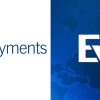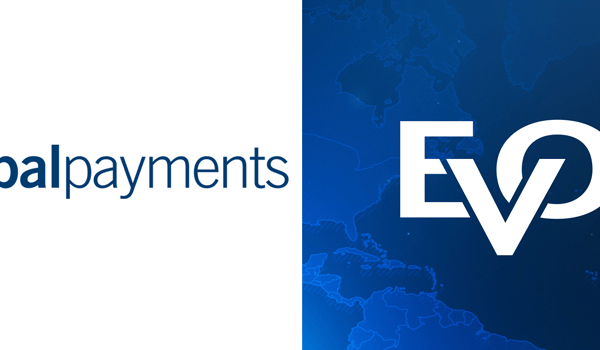
ATLANTA – EVO Payments, Inc. (NASDAQ: EVOP) (“EVO” or “EVO Payments” or the “Company”) today announced its second quarter 2022 financial results.
For the quarter ended June 30, 2022, reported revenue was $137.7 million compared to $122.2 million in the prior year, an increase of 13%. On a currency neutral basis, revenue for the quarter increased 18%. On a GAAP basis for the quarter, net income was $11.3 million compared to $6.8 million in the prior year, an increase of 66%. Adjusted EBITDA increased 21% to $51.7 million for the quarter, and margin of 37.6% expanded 250 basis points. On a currency neutral basis, adjusted EBITDA increased 26%.
For the six months ended June 30, 2022, reported revenue was $264.6 million compared to $228.4 million in the prior year, an increase of 16%. On a currency neutral basis, revenue for the year increased 20%. On a GAAP basis for the year, net income was $16.4 million compared $4.0 million in the prior year, an increase of 315%. Adjusted EBITDA increased 20% to $91.7 million for the year, and on a currency neutral basis, adjusted EBITDA increased 24%.
“I am pleased with our strong results again this quarter which were largely attributable to growth from our international markets and global tech-enabled channels as we expanded our referral networks, signed new merchants, and deepened existing relationships,” stated James G. Kelly, Chief Executive Officer of EVO. “I am excited about the merger of Global Payments and EVO, which is a testament to the strong foundation established by our founders Ray Sidhom, Chairman, and Jeff Rosenblatt, Executive Vice-Chairman, that has allowed us to grow EVO into an international company with more than 2,400 colleagues around the world. The transaction announced today will further enhance our resources and product capabilities and enable the combined organization to deliver leading payment solutions for merchants across our global markets.”
Second Quarter Highlights
- International revenue grew 33% on a constant currency basis, and now represents 62% of total revenue.
- Europe’s revenue increased 41% on a constant currency basis and DCC revenue increased 150% as cross border activity exceeded pre-pandemic levels.
- Latin America’s revenue increased 18% on a constant currency basis driven by 18% growth in the merchant portfolio.
- Signed new integrated referral partners across all markets, expanding EVO’s tech-enabled referral network to more than 1,700 relationships.
- Acquired certain eCommerce technology assets, including online storefront design, CRM capabilities, and shopping cart functionality, to provide a comprehensive eCommerce solution for merchants in Latin America.
- Acquired North49 Business Solutions, Inc. to establish native integrations to the Sage 300 and Sage Intacct solutions, which enables EVO to provide enhanced B2B integrated payments solutions to Sage customers. EVO’s suite of integrations now includes five native ERP solutions: Microsoft, SAP, Oracle, Acumatica, and Sage.
- Adjusted net income per share increased 43% compared to last year to $0.30 per share.
- Leverage as of June 30, 2022 was 1.9 times, an improvement from 2.6 times as of June 30, 2021.
EVO Acquisition by Global Payments
- On August, 1, 2022, EVO and Global Payments, Inc. (“Global Payments”) announced that they have entered into a definitive merger agreement under which Global Payments will acquire EVO for $34.00 per share in cash in a transaction that represents an enterprise value for EVO of $4.0 billion. The press release announcing the transaction is available on the Investor Relations section of EVO’s website.
- In light of the announced transaction, EVO will not provide guidance or host a conference call or webcast to review the second quarter 2022 financial results.
Additional Information and Where to Find It
This communication is being made in connection with the proposed transaction between Global Payments and EVO Payments. In connection with the proposed transaction, EVO Payments intends to file a proxy statement with the SEC. EVO Payments may also file other relevant documents with the SEC regarding the proposed transaction. The information in the preliminary proxy statement will not be complete and may be changed. The definitive proxy statement will be delivered to stockholders of EVO Payments. This communication is not a substitute for any proxy statement or any other document that may be filed with the SEC in connection with the proposed transaction.
INVESTORS AND SECURITY HOLDERS OF EVO PAYMENTS ARE URGED TO READ THE PROXY STATEMENT AND ANY OTHER RELEVANT DOCUMENTS THAT MAY BE FILED WITH THE SEC, AS WELL AS ANY AMENDMENTS OR SUPPLEMENTS TO THESE DOCUMENTS, CAREFULLY AND IN THEIR ENTIRETY IF AND WHEN THEY BECOME AVAILABLE BECAUSE THEY CONTAIN OR WILL CONTAIN IMPORTANT INFORMATION ABOUT THE PROPOSED TRANSACTION.
Investors and security holders will be able to obtain free copies of the preliminary proxy statement and the definitive proxy statement (in each case, if and when available) and other documents containing important information about EVO Payments and the proposed transaction once such documents are filed with the SEC through the website maintained by the SEC at http://www.sec.gov. Copies of the documents filed with the SEC by EVO Payments will be available free of charge on EVO Payments’ website at www.evopayments.com under the heading “Investors” or, alternatively, by directing a request by telephone or mail to EVO Payments at (770) 336-8463 or Ten Glenlake Parkway, South Tower, Suite 950, Atlanta, Georgia, 30328, Attention: Investor Relations.
Participants in the Solicitation
EVO Payments, its directors and certain of its executive officers and employees may be deemed to be participants in the solicitation of proxies from EVO Payments stockholders in connection with the proposed transaction. Information regarding the persons who may, under the rules of the SEC, be deemed participants in the solicitation of EVO Payments stockholders in connection with the proposed transaction, including a description of their direct or indirect interests, by security holdings or otherwise, will be set forth in the proxy statement when it is filed with the SEC. Information about these persons is included in EVO Payments’ annual proxy statement and in other documents subsequently filed with the SEC, and will be included in the proxy statement when filed.
Forward-Looking Statements
This release contains statements about future events and expectations that constitute forward-looking statements. Forward-looking statements are often identified by words such as “anticipates,” “believes,” “continues,” “estimates,” “expects,” “goal,” “objectives,” “intends,” “may,” “opportunity,” “plans,” “potential,” “near-term,” “long-term,” “projections,” “assumptions,” “projects,” “guidance,” “forecasts,” “outlook,” “target,” “trends,” “should,” “could,” “would,” “will” and similar expressions. We intend such forward-looking statements to be covered by the safe harbor provisions for forward-looking statements contained in Section 27A of the Securities Act of 1933, as amended, and Section 21E of the Securities Exchange Act of 1934, as amended. Forward-looking statements are based on our current beliefs, assumptions, estimates, and expectations, taking into account the information currently available to us, and are not guarantees of future results or performance. Forward-looking statements are not statements of historical fact. Forward-looking statements involve risks and uncertainties that may cause our actual results to differ materially from the expectations of future results we express or imply in any forward-looking statements, and you should not place undue reliance on such statements. Factors that could contribute to these differences include the following: the possibility that EVO may be unable to obtain the required stockholder approval or antitrust or other regulatory approvals or that other conditions to closing the merger may not be satisfied, such that the merger may not close or that the closing may be delayed; the reaction of customers, vendors, and employees to the announcement or consummation of the merger; general economic conditions, including the risk and uncertainties caused by COVID-19 and measures taken in response to the pandemic; that the merger may involve unexpected costs, liabilities or delays; risks that the merger disrupts current plans and operations of the parties to the transaction; the amount of the costs, fees, expenses and charges related to the merger; the outcome of any legal proceedings related to the merger; the occurrence of any event, change or other circumstances that could give rise to the termination of the merger agreement; and other factors about EVO and its business that are set forth in EVO’s other filings with the SEC, including under the caption “Risk Factors” in EVO’s Form 10-K for the fiscal year ended December 31, 2021 which was filed with the SEC on February 23, 2022.
We qualify any forward-looking statements entirely by the cautionary factors listed above, among others. Other risks, uncertainties and factors, not listed above, could also cause our actual results to differ materially from those projected in any forward-looking statements we make. Except as may be required by any applicable securities laws, we assume no obligation to update or revise these forward-looking statements for any reason, or to update the reasons actual results could differ materially from those anticipated in these forward-looking statements, even if new information becomes available in the future.
Non-GAAP financial measures
EVO Payments, Inc. has supplemented revenue, segment profit, net income (loss), earnings per share information and weighted average common shares determined in accordance with GAAP by providing these and other measures on an adjusted basis in this release. The non-GAAP financial measures presented herein should not be considered in isolation of, as a substitute for, or superior to, financial information prepared in accordance with GAAP, and such measures may not be comparable to those reported by other companies. Management uses these adjusted financial performance measures for financial and operational decision making and as a means to facilitate period-to-period comparisons. Management also uses these non-GAAP financial measures, together with other metrics, to set goals for and measure the performance of the business and to determine incentive compensation. The Company believes that these adjusted measures provide useful information to investors about the Company’s ongoing underlying operating performance and enhance the overall understanding of the financial performance of the Company’s core business by presenting the Company’s results without giving effect to non-operational items such as equity-based compensation and costs related to transition, acquisition and integration matters, and giving effect to a normalized effective tax rate for the Company. This release also contains information on various financial measures presented on a currency-neutral basis. The Company believes these currency-neutral measures provide useful information to investors about the Company’s performance by excluding fluctuations caused solely by movements in currency exchange rates in the non-U.S. jurisdictions where the Company operates. Reconciliations of each non-GAAP measure to the most directly comparable GAAP measure are included in the schedules to this release.
Among other non-GAAP financial measures presented, this release contains a presentation of our adjusted EBITDA, adjusted net income, and adjusted net income per share information. These measures do not purport to be an alternative to cash flows from operating activities as a measure of liquidity, and are not intended to be a measure of
free cash flow available for management’s discretionary use as they do not consider certain cash requirements such as tax payments and, in the case of adjusted EBITDA, interest payments and debt service requirements. Further, adjusted EBITDA does not purport to be an alternative to net income as a measure of operating performance. These measures, or measures similar to them, are frequently used by analysts, investors, and other interested parties to evaluate companies in our industry. Adjusted EBITDA is defined as net income (loss) before provision for income taxes, net interest expense, and depreciation and amortization, excluding the impact of net income attributable to non-controlling interests in consolidated entities (including related depreciation and amortization and income taxes), share-based compensation, gain (loss) on investment in equity securities, financing costs, currency exchange impacts, and transition, acquisition and integration costs.
Adjusted net income is defined as net income (loss) adjusted to exclude income taxes, the impact of net income attributable to non-controlling interests in consolidated entities (including related depreciation and amortization and income taxes), share-based compensation, gain (loss) on investment in equity securities, financing costs, currency exchange impacts, transition, acquisition and integration costs, and amortization of acquisition intangibles and subsequently adjusted to give effect to a normalized tax rate for the Company.
The calculation of adjusted EBITDA and adjusted net income have limitations as analytical tools, including: (a) they do not reflect the Company’s cash expenditures, or future requirements for capital expenditures, or contractual commitments; (b) they do not reflect changes in, or cash requirements for, the Company’s working capital needs; (c) in the case of adjusted EBITDA, it does not reflect the interest expense or the cash requirements necessary to service interest or principal payments on the Company’s indebtedness; (d) they do not reflect the Company’s tax expense or the cash requirements to pay the Company’s taxes; and (e) although depreciation and amortization are non-cash charges, the assets being depreciated and amortized will often have to be replaced in the future and these measures do not reflect any cash requirements for such replacements.
Adjusted net income per share is defined as adjusted net income divided by pro forma weighted average shares. On May 25, 2021, all 32,163,538 outstanding shares of the Company’s Class B common stock were automatically cancelled for no consideration and each outstanding share of the Company’s Class C common stock was automatically converted into one share of Class D common stock. Prior to May 25, 2021, pro forma weighted average shares is defined as GAAP common weighted average shares (equal to our weighted average Class A common shares) plus our weighted average Class B common shares, weighted average Class C common shares, weighted average Class D common shares, dilutive equity awards measured under the treasury stock method, and weighted average preferred shares (including paid-in-kind dividends). Following May 25, 2021, pro forma weighted average shares is defined as GAAP common weighted average shares (equal to our weighted average Class A common shares), plus weighted average Blueapple common shares (formerly Class B common shares), weighted average Class D common shares (which include converted weighted average Class C common shares), dilutive equity awards measured under the treasury stock method, and weighted average preferred shares (including paid-in-kind dividends). Weighted average preferred shares is defined as the weighted average shares of Class A common stock issuable upon a voluntary conversion of the Company’s Series A convertible preferred stock by its holder. Blueapple common shares (formerly Class B common shares) is defined as the weighted average Class A common shares issuable upon the exercise by Blueapple, Inc., a Delaware corporation which is controlled by entities affiliated with the Company’s founder and Chairman of the board of directors (“Blueapple”), of its right to cause the Company to use its commercially reasonable best efforts to pursue a public offering of up to 32,163,538 Class A common shares and use the net proceeds therefrom to purchase an equivalent number of the units of EVO Investco, LLC held by Blueapple.
Net Debt to LTM Adjusted EBITDA ratio, which we refer to as our Leverage Ratio, is a non-GAAP measure defined as total long-term debt less available cash (cash on the balance sheet and cash in transit less certain merchant settlement account balances and merchant reserves) divided by the trailing twelve month Adjusted EBITDA. This ratio is frequently used by investors, and management believes this measure provides relevant and useful information.
About EVO Payments, Inc.
EVO Payments, Inc. (NASDAQ: EVOP) is a leading payment technology and services provider. EVO offers an array of innovative, reliable, and secure payment solutions to merchants ranging from small and mid-size enterprises to multinational companies and organizations across the globe. As a fully integrated merchant acquirer and payment
processor in over 50 markets and 150 currencies worldwide, EVO provides competitive solutions that promote business growth, increase customer loyalty, and enhance data security in the international markets it serves.
EVO Payments, Inc.
Contact:
Sarah Jane Schneider
Investor Relations & Corporate Communications Manager
770-709-7365
investor.relations@evopayments.com






